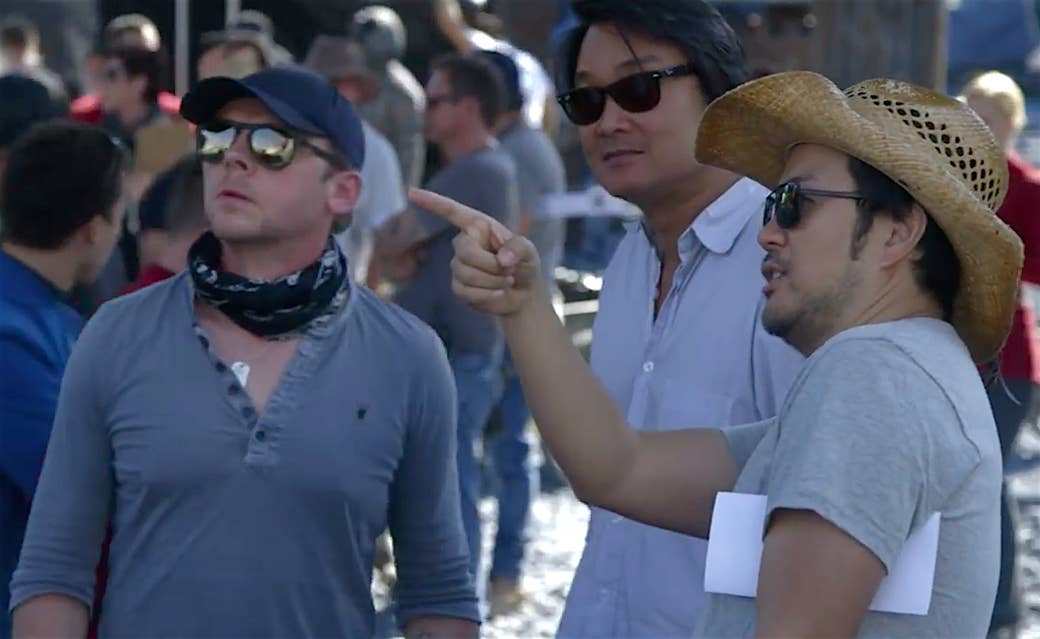
On the day BuzzFeed News visited the Star Trek Beyond set in July last year, director Justin Lin was shooting a scene in which Captain Kirk (Chris Pine) receives some urgent news from his crewmates Uhura (Zoe Saldana) and Sulu (John Cho).
"Captain, this thing that he has…" Uhura said, alluding to Beyond's villain Krall (Idris Elba) and his vaguely powerful weapon of mass destruction.
"Yorktown," interjected Sulu, referring to the Federation outpost where Sulu's husband and daughter were stationed. "He's going to destroy Yorktown." Jaylah (Sofia Boutella), an alien with striking white-and-black skin, turned to Kirk and fixed him with a fateful stare. "You take my house," she said, referring to the grounded ship in which they were all standing. "You make it fly."
The scene unfolded with the same kind of cryptic urgency as just about any other summer action movie. But then Kirk looked over at Scotty (Simon Pegg), his trusty engineer, and the dialogue suddenly took on a decidedly nerdier tone.
"Scotty, can you get this thing started?" said Kirk.
"Started, yes," said Scotty. "Flying, that's another thing, sir. These old vessels, they were built in space. They were never supposed to take off from atmosphere."
In an interview almost a year later, Pegg didn’t even try hide his pride at composing that geeky line.
"Did you notice that Scotty says that starships are built in space?" the Beyond co-writer said in a Los Angeles hotel suite, grinning from ear to ear.
It was a small but telling detail in Pegg and Doug Jung’s script, which was written at a breakneck pace and filled with knowing nods to 50 years of Star Trek geekery. "If you come to it with some history, then that will be an enriched meaning there for you," Pegg said. "And there's so much stuff in it for people who were there in September 1966" — the month Star Trek first premiered on TV.
BuzzFeed News spoke with Pegg and Jung about how they somehow managed to finish the job — warning, the SPOILERS start here.

The movie needed to be written so fast, there was almost no time to think.
Initially, Pegg returned to the third of the new Star Trek movies simply to reprise his performance as Scotty. Roberto Orci, who had co-written 2009's Star Trek and 2013's Star Trek Into Darkness, was set to make his directorial debut with the movie, replacing J.J. Abrams, who'd beamed out of the Trek universe to the helm of Star Wars: The Force Awakens.
But in December 2014, Orci walked away from the director's chair, reportedly due to creative differences with Paramount Pictures, and his developing script was scrapped. Star Trek's 50th anniversary, however, was looming; the studio still needed the film to make a planned July 2016 release date. Abrams, who stayed on the project as a producer, had wooed Lin to direct, but a new script needed to be written, and at warp speed.
It was in that heightened atmosphere that Abrams' producing partner Bryan Burk mentioned the situation to Pegg while the two were working on Mission: Impossible – Rogue Nation. "Burky said, 'Do you want to do it?'" Pegg explained in an interview on the Beyond set last July. "And I was like, 'Well, all right, sure, why not? Give it a go!' In a quite cavalier fashion, really."
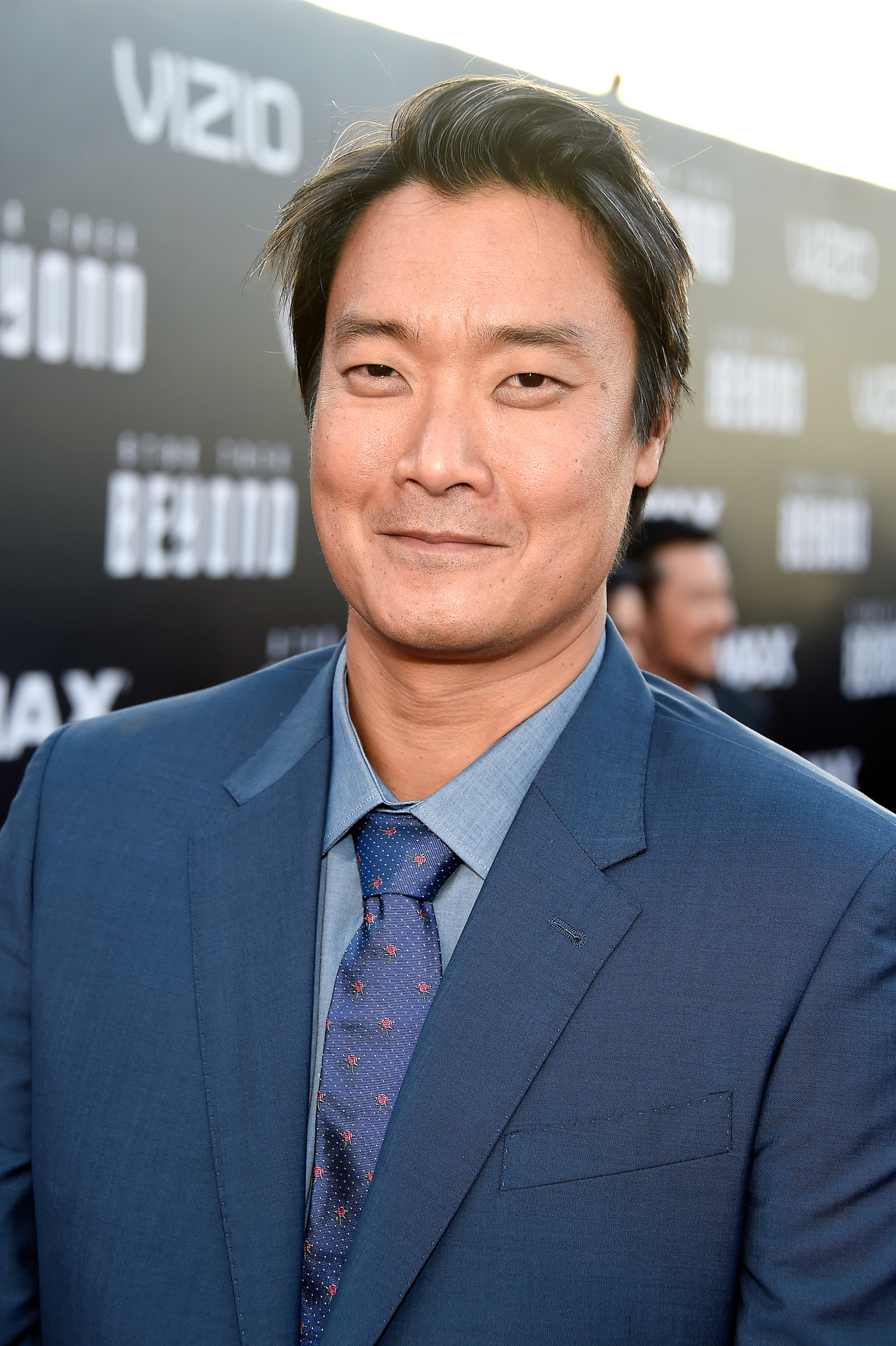
Meanwhile, Jung, who had largely written for TV (Big Love, Dark Blue, Banshee), was recruited by producer Lindsey Weber to work with Pegg based on the strength of a (still undisclosed) project he’d been developing with Abrams' production company Bad Robot. "I remember Lindsay saying, 'We're doing this, we're getting Justin, Simon's co-writing it, would you be interested in helping?'" Jung explained in an interview earlier this month. "It was literally about as simple as that."
What was far from simple was the task of writing a feature-length screenplay for a massive sci-fi action movie in only six months. "You [usually] kind of go into your writing hole, and you come out however many weeks or months later and say, 'Here,'" said Jung. "We didn't have that luxury."
Instead, Lin had to start preproduction on the film while Pegg and Jung were still writing it, in order to be able to start shooting in July 2015. "We constantly had people just knocking on the door saying, 'When can we build something?'" said Pegg in a second interview earlier this month. "So it was a pressure gig. They sent us a deadline that was literally like, 'Can we have Act 1 by breakfast, Act 2 by lunch, and Act 3 by dinner?' We looked at it and were like, Are they fucking kidding?! But there was no other way to do this."
"I had no appreciation to what it was actually going to feel like, because I'd never been in that experience," added Jung. "I don't think it's one that anybody cares to repeat." Still, Jung did see at least one silver lining to the supercharged schedule. "We actually got out of our own way, because we didn't have the luxury of second-guessing that much," he said.
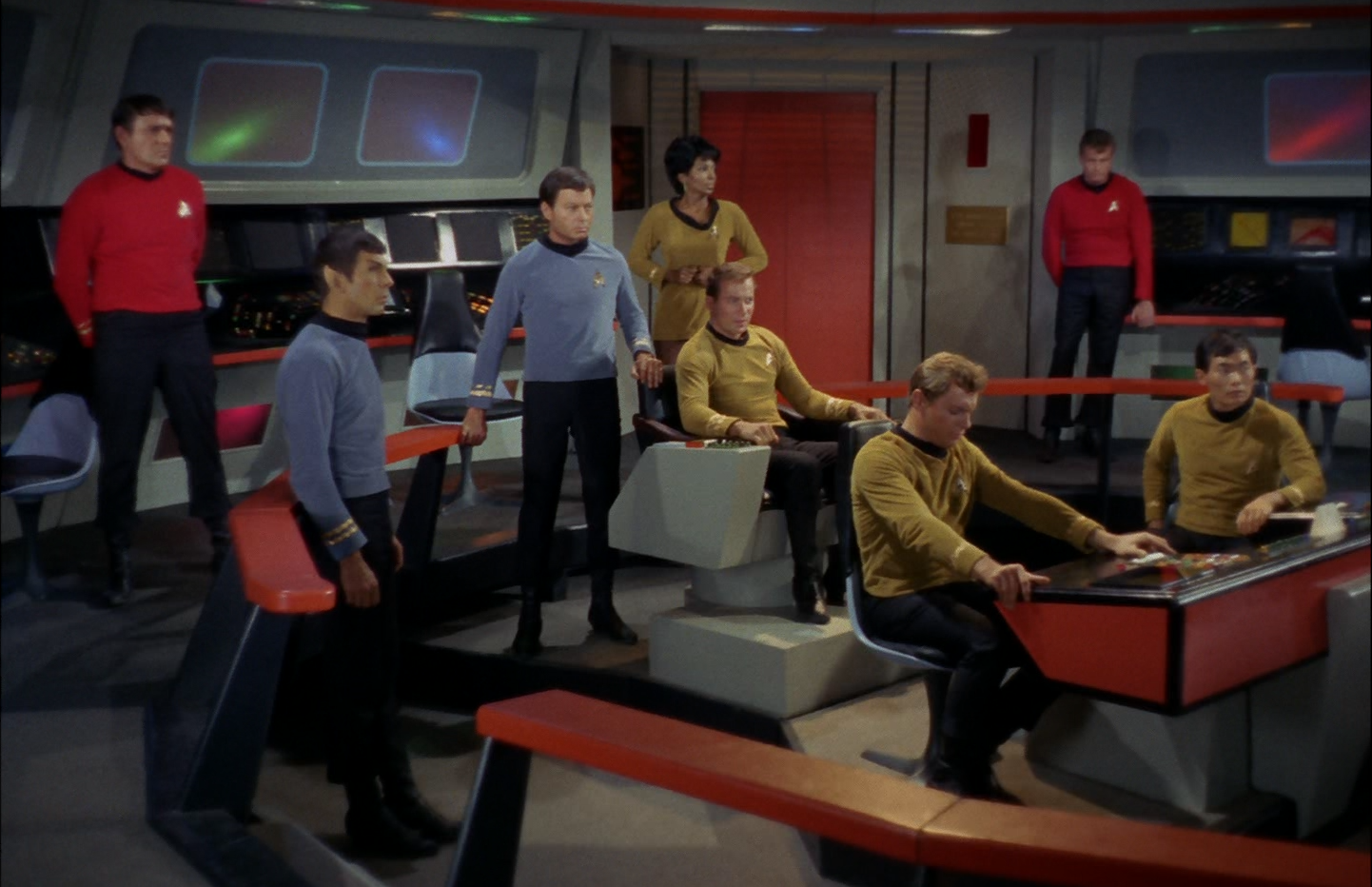
Pegg and Jung spent two weeks in the British countryside writing the script — and watching Star Trek.
The most intense period of writing came during a roughly two-week period when Jung flew to Pegg's home outside of London to work on the script nonstop. "We just wrote and wrote and wrote," Jung recalled. "Food was involved at some point. … There were times where he'd do a scene, and then I'd do a different scene, and we'd swap. Or if we were on a good tear, we'd just do scenes together."
"It was so nice, because LA was asleep," added Pegg. "We could just work in this bubble of quiet. I live out in the country, so we just heard horses neighing. We'd always watch the clock, because at about 4:00, LA would start to wake up and the emails would start coming in."
It was about that time that Pegg and Jung would end their day by watching an episode of the original Trek TV series. "We would try to bolster the authenticity of our universe with details from the original series," said Pegg.
After watching the "Corbomite Maneuver" episode, for example, the screenwriters were inspired to reuse Kirk's ship-wide message to his entire crew: "There is no such thing as the unknown, only things temporarily hidden." From "Balance of Terror," they used names of two crew members (Tomlinson and Martine) as characters who are killed by Krall. And they learned that the concept of separating the saucer section of the Enterprise — popularized on Star Trek: The Next Generation — was actually first introduced in the original series episode "The Apple," which provided a crucial plot point for the massive sequence in Beyond during which the Enterprise is destroyed.
Although, at first, Pegg had to be convinced to write that sequence at all.
The screenwriters did not initially appreciate Lin's idea to destroy the Enterprise.
When Pegg and Jung first met with Lin in January 2015, one of the first set pieces the director wanted to shoot was the destruction of the Enterprise — something he'd always dreamed of doing since he was a kid, watching the original series. But at first, Pegg would have none of it.
"I remember shouting down the telephone, 'It's been seen before!'" Pegg said with a self-mocking pout. "'They've done it before in The Search for Spock and in Generations!' I was really mad."
Jung was also skeptical, for a more practical reason. "Justin wanted it to happen early in the movie, and we were like, that boxes us in in a lot of ways," he said. But turning up that sort of storytelling pressure was part of Lin's design — as were his brutal and elaborate plans for how he wanted to essentially dismember the ship. "When he took us through all of it, you start to go, oh, he wants you to feel like they're murdering someone."
Lin's plans also eventually won over Pegg. "The more Justin spoke about the devastating way in which he was going to do it, I was like, 'But…well…yeah, okay,'" he said with a laugh.
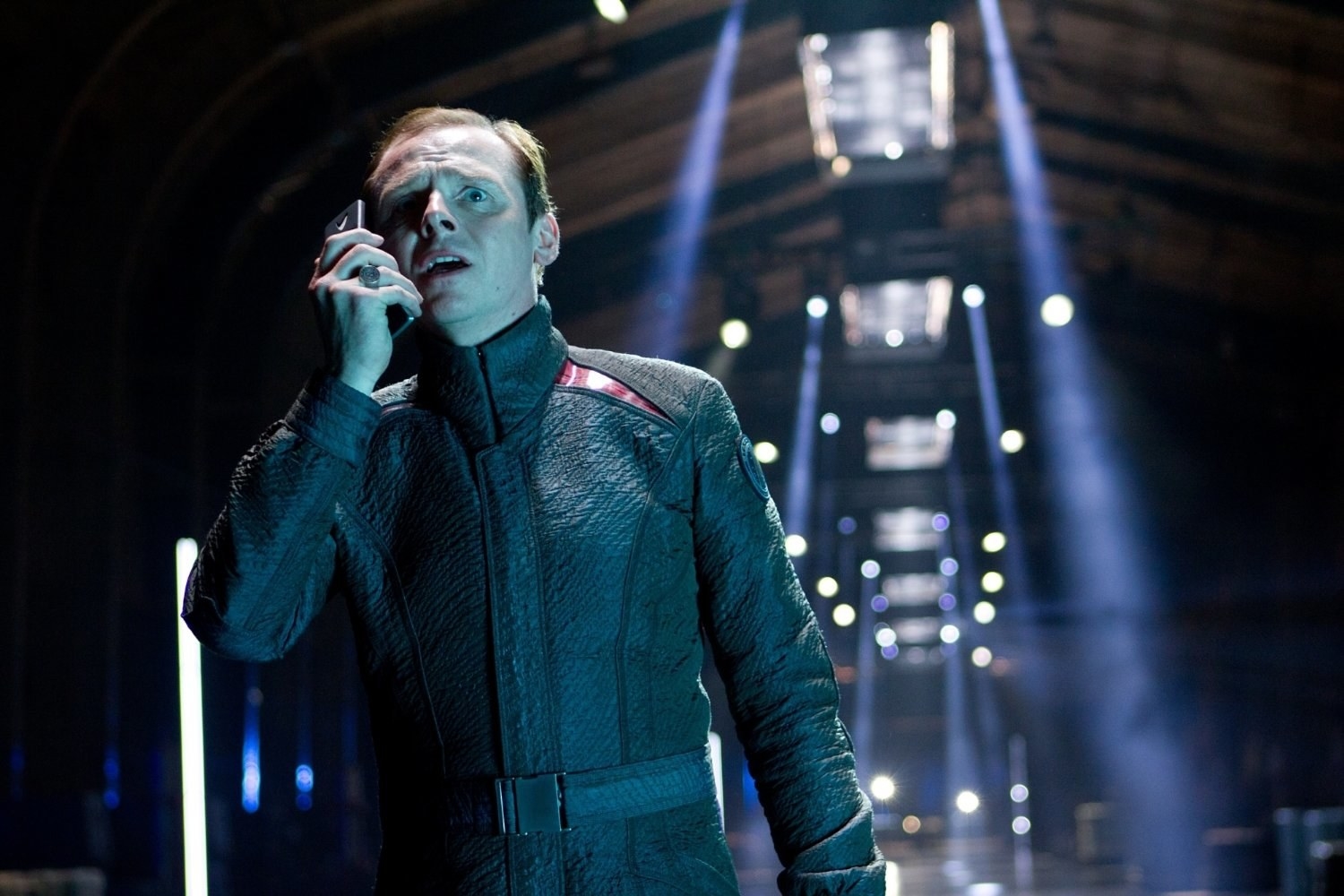
Pegg was familiar with — and at least somewhat sympathetic toward — Trek fans' criticisms of the earlier films.
Before he addressed the backlash against the first two rebooted Trek movies, Pegg pointedly cleared his throat. "I have been aware of the kind of grumblings on the sidelines about the new Star Trek, and sometimes I've kind of thought, Yeah, I can see why you'd think that," he said from the set. "I can appreciate some of the criticism, particularly in terms of the fact that [the movies were set] still very much in the realm of Earth's little corner of the Federation, and Star Trek — so called — is about something other than that."
Pegg was especially aware of how the big-budget scale of both previous Trek reboot movies struck some fans as antithetical to the franchise's brainy storytelling and the charming, spare thrift of the original series' visual design. "Star Trek has always been as much about the smaller, the minutiae of humanity, as it has been about special effects," he said. "There were no real special effects in the TV show. It was very lo-fi and quite understated. And as such, they really concentrated on that stuff above everything else. So we wanted to make sure that there was a foundation of all that first."
That understanding, plus rewatching Trek's earliest incarnation daily, drove the screenwriters to shape a story that felt much more like the original series. They zeroed in more on the characters and their dynamics and sent the characters into literally uncharted territory — as far from Earth as possible. But Pegg also recognized that he was not making a movie just for hardcore Star Trek fans. "That's the really difficult balance to strike, because you don't want to make it seem that people are coming to a party that they haven't been invited to," he said. When it comes to discussing this tension, however, Pegg couldn't help but grouse a little about having to make as many different people happy as possible. "What I think we did in the end was to create a story that is very, very much Star Trek, but at the same time, if you've never seen Star Trek before…” He paused, and muttered, “This is what everyone always says, but it has to be the way — you can sit down and get it."
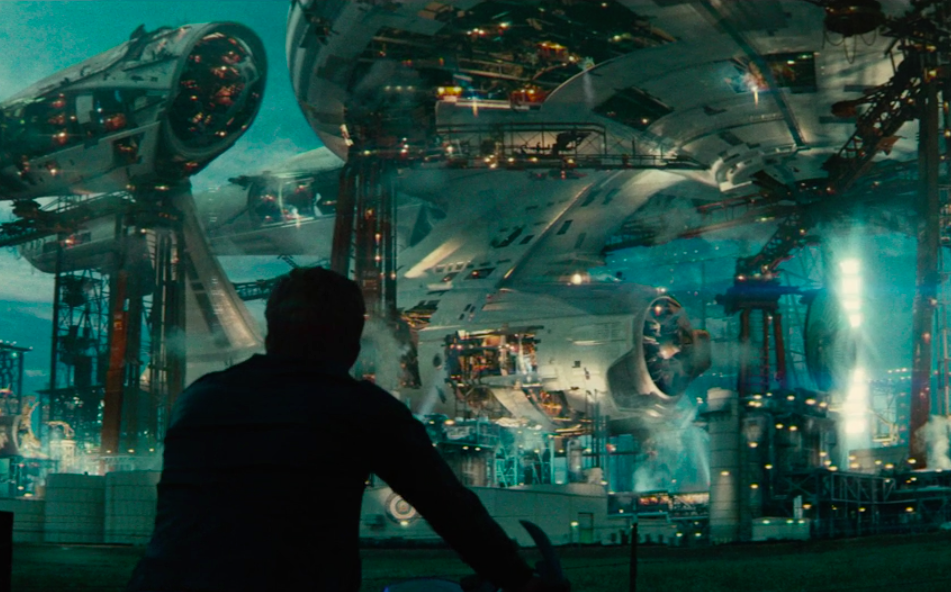
Pegg and Jung strived to put more "science" into their "science fiction."
Another way the screenwriters strove to make Beyond feel more Trek-like was by keeping its story more grounded in plausible explanations for how the laws of physics operate. "We got to be huge sticklers about scientific possibility," said Jung.
For example, take Scotty's line from his urgent scene with Kirk above. "[That] is a little nod to the fact that in the two previous films, the Enterprise has been seen in atmosphere — which it probably never would have been, really," said Pegg. "I was always a bit like, 'Um, do we have to do that?' about that. That was my little joke about the practicalities of building a ship that size and then having it somehow escape Earth's gravity." He paused, and raised a skeptical eyebrow. "Mmmm?"
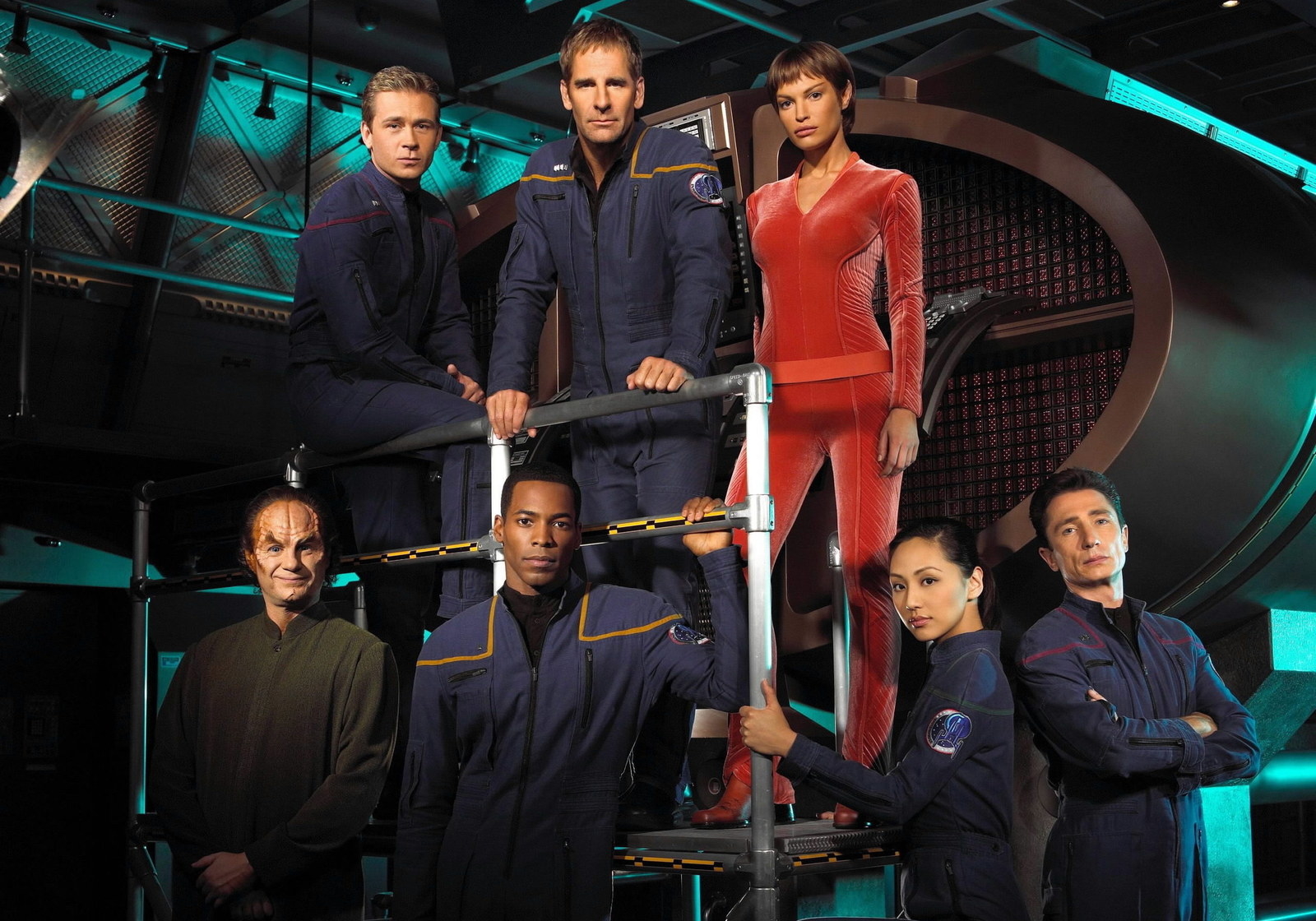
They deliberately made several references to the most recent Trek TV series, Star Trek: Enterprise.
The second and third acts of Star Trek Beyond feature a number of pointed nods to the last time Trek was on television, Star Trek: Enterprise, which aired on UPN from 2001 until it was canceled in 2005 due to low ratings. Starring Scott Bakula as Captain Jonathan Archer, the show’s timeframe took place before the original TV series and the reboot movies, when the United Federation of Planets did not yet exist and Starfleet operated with a smaller, more primitive class of starship called the NX.
Pegg admitted he'd never really watched much of Star Trek: Enterprise (due in part to the show's notorious theme song written by Diane Warren: "I just couldn't get into soft-rock Star Trek," he said with a laugh). "It is part of the mythology, so we went back and did our research about that period of time."
For his part, Jung was more keen on exploring what Star Trek: Enterprise could offer their film. "I'm actually kind of attracted to that time in the Trek history, because it is the most tumultuous time in the canon," he said. And once the filmmakers hit on the idea that Krall would actually be a former Starfleet captain from the Enterprise era named Balthazar Edison, they burrowed even deeper into the show's ephemera. Edison was an officer in M.A.C.O., or the Military Assault Command Operations, which battled a race of aliens called the Xindi in Season 3 of the show — and ultimately disbanded after the Federation was created.
"It's certainly a deep cut," admitted Pegg. But once they began to look into Star Trek: Enterprise, the screenwriters enjoyed the idea of evoking the least-watched Trek TV series since the original. "Enterprise feels slightly like the unloved child of Star Trek. It's the last Baldwin of Star Trek." He laughed. "No, sorry, to whoever that is. Stephen."
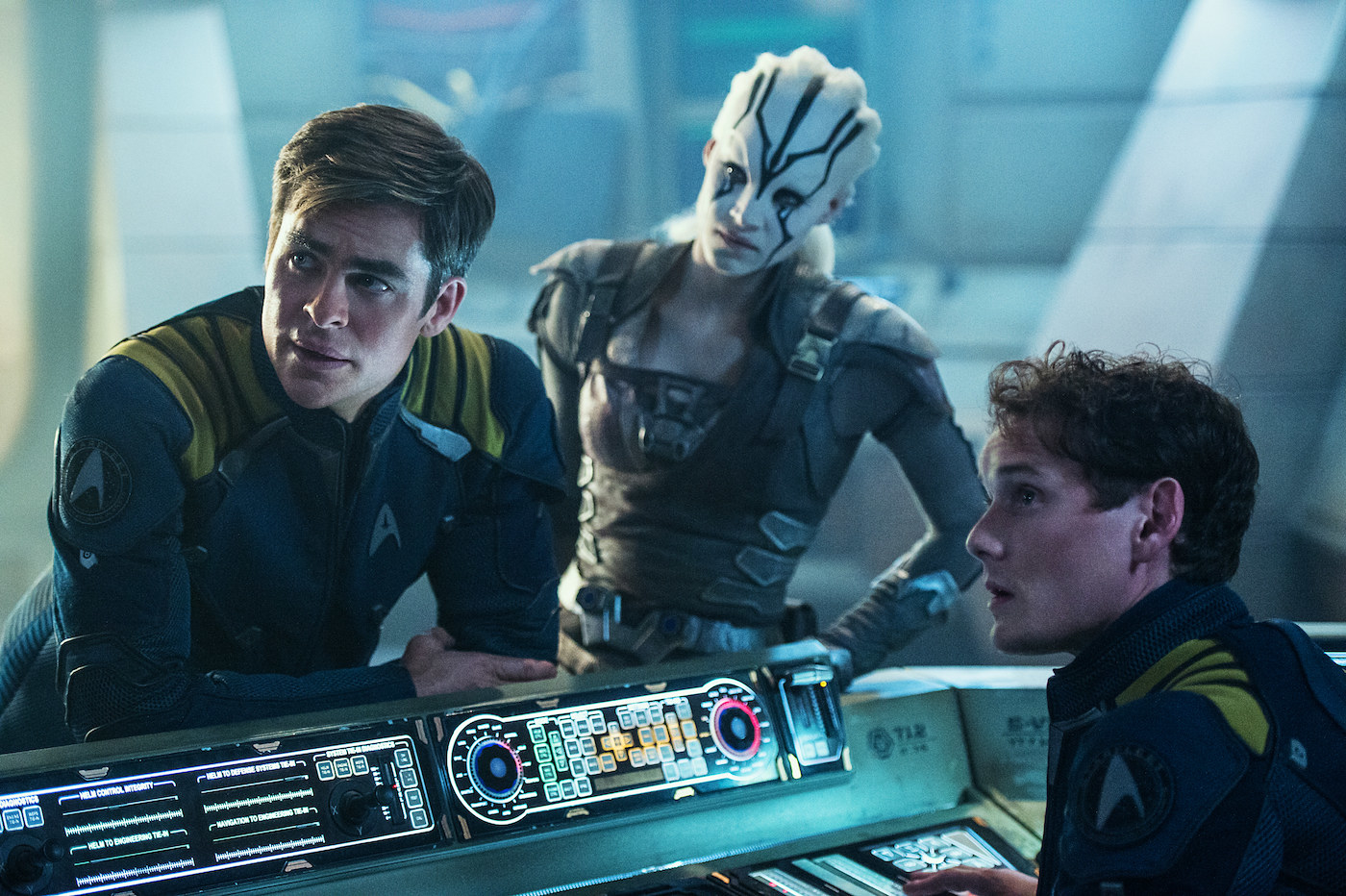
They embraced the optimistic — and quite timely — ideals of the Federation.
One of creator Gene Roddenberry’s core tenets for Star Trek is that, in the future, humanity would turn away from war and poverty — and the use of money. It is a radically egalitarian outlook that always perplexed Lin. "Justin, who's Taiwanese-born, has a strong interest in global politics," said Jung. "One of the things he kept talking about was, 'Um, I don't kind of get it. Like, how do you have a universe with no money? How do you have a non-capitalist society? Does that just mean everybody's given everything that they need? How do you progress? How do you evolve, without a Darwinistic push behind you?'"
So the filmmakers set out to reinforce why the Federation's embrace of unity and the common good is so vital to civilization's survival — in large part because those ideals are how Trek itself has lasted for a half century.
"Star Trek has been able to evolve because it's about something which is very close to our hearts, which is our own advancement, our own sense of adventure, and our own sense of personal evolution," said Pegg. "It's still here because we still feel that way. People are still interested in this idea of our future, and our future being extremely positive. It was all about inclusion, and tolerance, and thrusting frontierism. It's still about human beings making a go of it — the idea that we might just survive, at a time when we look around us and just think, We don't stand a chance."
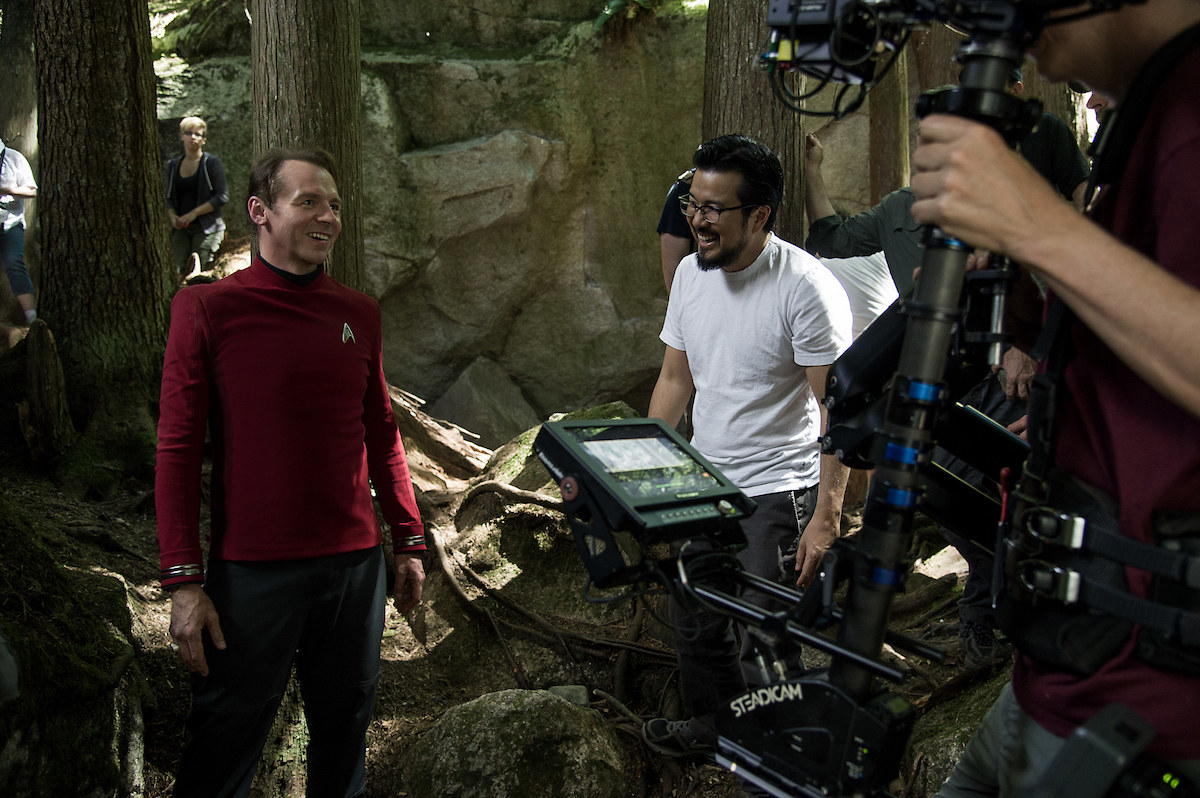
Jung and Pegg aren’t planning on writing the next Star Trek movie, but never say never.
On Monday, Paramount announced that Chris Hemsworth would reprise his role from 2009's Star Trek as George Kirk, James Kirk's father, in a script written by J.D. Payne and Patrick McKay — the same screenwriters who had worked on the first iteration of Star Trek Beyond with Orci. Speaking with BuzzFeed News before that announcement was made, Jung and Pegg both demurred when asked if they would return to make another film, but said they would also obviously jump at the opportunity.
"As much as you think you know about these characters, there are so many things that are unanswered," said Jung. "You get to add something genuine and authentic and original, but it's in the spirit of everything that came [before]. So it's kind of like writing really great fan fiction. Just to be able to say, like, 'Ooh, we put that in the canon' is really fabulous."
"I'd love to do it again under slightly calmer circumstances," added Pegg. "It was, at times, the hardest thing I've ever done in my life. The beginning of it was soul destroying at times, because it felt like we were looking at a gigantic snowy mountain wearing a pair of Speedos, knowing that we were going to have to climb it. And somehow we managed to get to the top, and we didn't get frostbite on our private parts."
